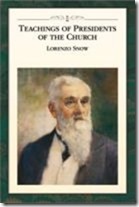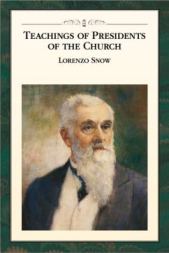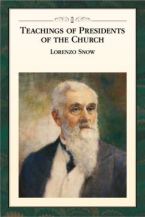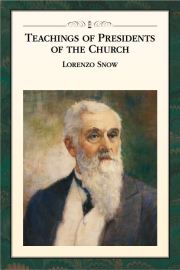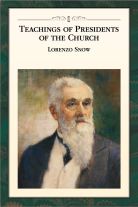Well, here we are at the last chapter, this has been very interesting going right through this manual and has raised some great issues and discussions. Next year we will not be going right through the Joseph Fielding Smith manual, but rather just going through a few that stand out.
This last chapter brings nothing massively new to comment on, there is some nice commentary on a visit to the Holy Lands. In fact much of this chapter would not cause problems to many Christians reading it unless you have some background information. 2 statements particularly got my interest.
Statement 1
Jesus Christ the Son of God was once placed in a condition that it required the highest effort in order to accomplish what was necessary for the salvation of millions of the children of God. It re- quired the highest effort and determination that had to be exercised before the Son of God could pass through the ordeal, the sacrifice that was necessary.7
I wonder how often it is taught in the Mormon Church today that all of this was actually done to achieve exaltation for Christ as well, as with many teachings of the Mormon Church that massively cause problems to Christians we tend not to see much emphasis on this today.
Traditional Mormon teaching is that if you go far back enough we all started in the same way as eternal “intelligence’s” waiting to progress, if you go far back enough Christ and Heavenly Father were right there with us, however not all LDS people believe this today.
However as this line of thinking carries on the necessity to gain a spiritual body to our heavenly parents, this is called the first estate or the pre-mortal life. Then there is the necessity to come to earth and gain a physical body for our mortal probation or second estate. Traditional Mormonism teaches that heavenly Father had His second estate on another world, however Christs second estate was carried out in His incarnation.
10th President Joseph Fielding Smith said:
“CHRIST GAINED FULNESS AFTER RESURRECTION. The Sav- ior did not have a fulness at first, but after he received his body and the resurrection all power was given unto him both in heaven and in earth. Although he was a God, even the Son of God, with power and authority to create this earth and other earths, yet there were some things lacking which he did not receive until after his resurrection. In other words he had not received the fulness until he got a resurrected body, and the same is true with those who through faithfulness become sons of God. Our bodies are essential to the fulness and the continuation of the seeds forever” (Joseph Fielding Smith, Doctrines of Salvation 1:33).
Christ had to come to earth and live a life worthy of His own exaltation. Needless to say with all that He did He did this with flying colors as it were, however when you really think about it, where is the sacrifice in this?
I believe as Philippians 2:5-8 says that Jesus was equal with the Father and stepped down. After this He then rose again coming back to the same position He was in before He came to earth thus sacrificing His glorious position with the Father to die for us then returning to where He was, much more glorious in the eyes of man, but equally powerful and glorious as God as He was before. This is an area well worth raising when you speak with Mormons.
Statement 2
. . . Though he has sacrificed himself and laid the plan for the redemption of the people, yet unless the people labor to obtain that union between him and them, their salvation never will be accomplished.
Its the classic works verses grace argument but here it is, people must labour to obtain that union. I am often told by LDS people that there is no checklist for this however in the Exaltation section of the LDS Gospel Principles manual (2009) we see this:
Requirements for Exaltation
The time to fulfill the requirements for exaltation is now (see Alma 34:32–34). President Joseph Fielding Smith said, “In order to obtain the exaltation we must accept the gospel and all its covenants; and take upon us the obligations which the Lord has offered; and walk in the light and the understanding of the truth; and ‘live by every word that proceedeth forth from the mouth of God’” (Doctrines of Salvation, 2:43).
To be exalted, we first must place our faith in Jesus Christ and then endure in that faith to the end of our lives. Our faith in Him must be such that we repent of our sins and obey His commandments.
He commands us all to receive certain ordinances:
- We must be baptized.
- We must receive the laying on of hands to be confirmed a member of the Church of Jesus Christ and to receive the gift of the Holy Ghost.
- Brethren must receive the Melchizedek Priesthood and magnify their callings in the priesthood.
- We must receive the temple endowment.
- We must be married for eternity, either in this life or in the next.
In addition to receiving the required ordinances, the Lord commands all of us to:
- Love God and our neighbors.
- Keep the commandments.
- Repent of our wrongdoings.
- Search out our kindred dead and receive the saving ordinances of the gospel for them.
- Attend our Church meetings as regularly as possible so we can renew our baptismal covenants by partaking of the sacrament.
- Love our family members and strengthen them in the ways of the Lord.
- Have family and individual prayers every day.
- Teach the gospel to others by word and example.
- Study the scriptures.
- Listen to and obey the inspired words of the prophets of the Lord.
Apologies for the long copy and paste there, however things like this are the reason why ministries like mine exist, Jesus said come to Me my burden is light. We see in Luke 7:50 a woman make a demonstration of her faith and Jesus simply says “Your faith has saved you go in peace” Luke 7:50. We of course see in so many places in the New Testament that salvation is not our work, Romans 4:5 says
But to him that worketh not, but believeth on him that justifieth the ungodly, his faith is counted for righteousness.
Righteousness does not come from following the above list, union with Christ does not come from doing the LDS Church tells you, rather it comes from Jesus, trust in Jesus come to Jesus and He is enough for you, this is why my site exists, and this small part of this chapter reminds me why this is so vital.
Romans 10:3 seems very fitting here, imagine this was talking about LDS people.
For they being ignorant of God’s righteousness, and going about to establish their own righteousness, have not submitted themselves unto the righteousness of God.
One of the arguments LDS people make which almost seems fair is. Well I may disagree with you on the works issue, but I still trust Jesus anyway, so Ill be ok.
However the problem is that in following these rules and seeking to make union with Christ by your works rather than just trusting in His, means you are trusting in a righteousness that does not exist, in seeking to establish your righteousness you have missed Christs righteousness and therefore remain outside of the fold of Christianity.
A probably less than perfect analogy is imagine if I knew I was going to my families for Christmas dinner, they promised me a great meal but not trusting that they would give me enough food I eat a meal first. I go there and end up not eating much of what was a perfectly sufficient meal. Therefore saying that their food was not enough for me I do not partake in what they offered.
Mormons in saying that you need to add your works to the works of Christ for your salvation whether you intend to or not, you are saying that what He did is not enough for you, therefore you have missed the righteousness that is in Christ.
I finish this with echoing Philippians 3:9 for myself and praying that those reading would take this on for themselves.
And be found in him, not having mine own righteousness, which is of the law, but that which is through the faith of Christ, the righteousness which is of God by faith:
Thanks all for going through this book with us, have a great Christmas and we look forward to seeing you back here next year, that’s all from us in 2013.
